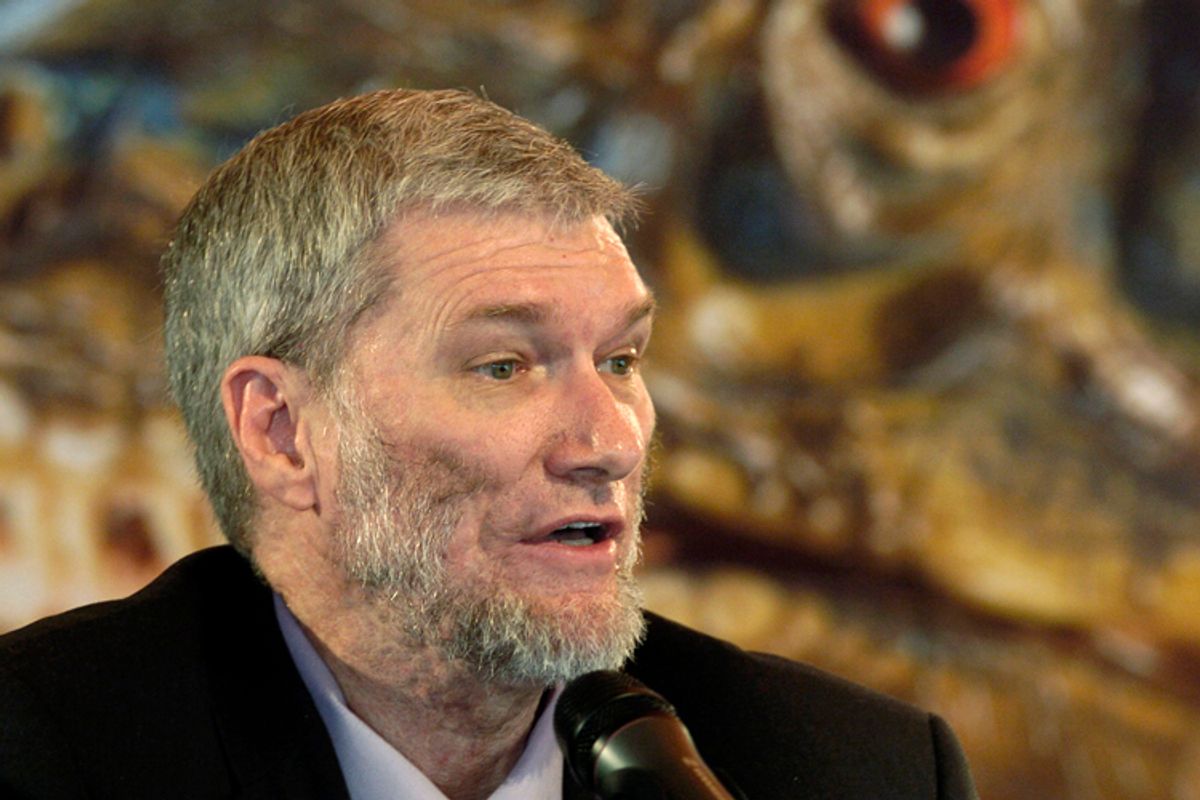Last week, Bill Nye the Science Guy and Ken Ham the Pseudoscience Guy actually debated whether or not the creation story in Genesis – you know, the one with the talking serpent – is true. For a couple of hours, Nye calmly rehashed everything the people in the audience and watching online were supposed to learn in school – basic biology, geology, astronomy, and other sciences. Ham, meanwhile, gave a tour de bouffonnerie that seemed to serve as a comforting reaffirmation for the Aussie’s adopted home crowd at his Creation Museum in Petersburg, Ky.
In his assessment of the debate, Salon’s Sean McElwee writes, “young-earth creationism is not a religious belief, and it certainly is not scientific. To put it bluntly, it is quackery.”
While creationism is certainly quackery, I take issue with the idea that it is not a religious belief. Creationism is a religious belief by definition. It is the idea that god created the universe and animals in their current form less than 10,000 years ago. This may not be McElwee’s belief, but it is certainly the belief of Ham and millions of other Christians. If McElwee truly believes that young earth creationism is not a religious belief, I challenge him to produce a scientist who rejects the creation account in Genesis, but is nonetheless a young earth creationist.
McElwee also says, “I have deep and profound disagreements with those who call themselves New Atheists. I worry with Rabindranath Tagore that, ‘material advantage … has tempted the modern man away from his inner realm of spiritual values.’”
First, I have never heard anyone refer to himself as a “New Atheist.” As far as I can tell, it is most commonly intended as a smear by believers and accommodationists – those who believe there is a common ground to be had between religion and science.
Second, the “modern man” is actually more moral than his predecessors. It is no accident that as developed countries have become less religious, previously marginalized demographics, such as women, racial and religious minorities, gay people, and others, have become far more accepted in mainstream society. Bullying, sexual harassment, and other social scourges are taken much more seriously than in years past. There is still much progress to be made on these fronts, but it’s clear that declining religiosity has at the very least had no negative impact on them. At the most, there is a direct connection between the two.
However, the reality is that religion conveys no more wisdom on people than say, Aesop’s fables. But in fairness to Aesop, no one has ever cited his works as justification for irrational hatred and violence. The idea that religion is the only thing keeping people from moral nihilism is easily debunked by the fact that there are millions of people who reject religion yet lead moral lives.
The accomodationist tendency to insist that manifestations of religion that they dislike aren’t actually religious in nature is both wrong and dangerous. Accomodationists want us to believe that religious people who are morally upstanding are that way because of their religion. Yet at the same time, they take great pains to explain that those religious people who do harm actually do so for reasons other than their faith, or because they fundamentally misinterpret the underpinnings of their religion.
The only thing being misinterpreted here is the essential nature of religion. Humans can be irrational enough without adding highly subjective doctrines and moral codes into the mix. As the physicist Steven Weinberg once said of religion, “With or without it you would have good people doing good things and evil people doing evil things. But for good people to do evil things, that takes religion.”



Shares